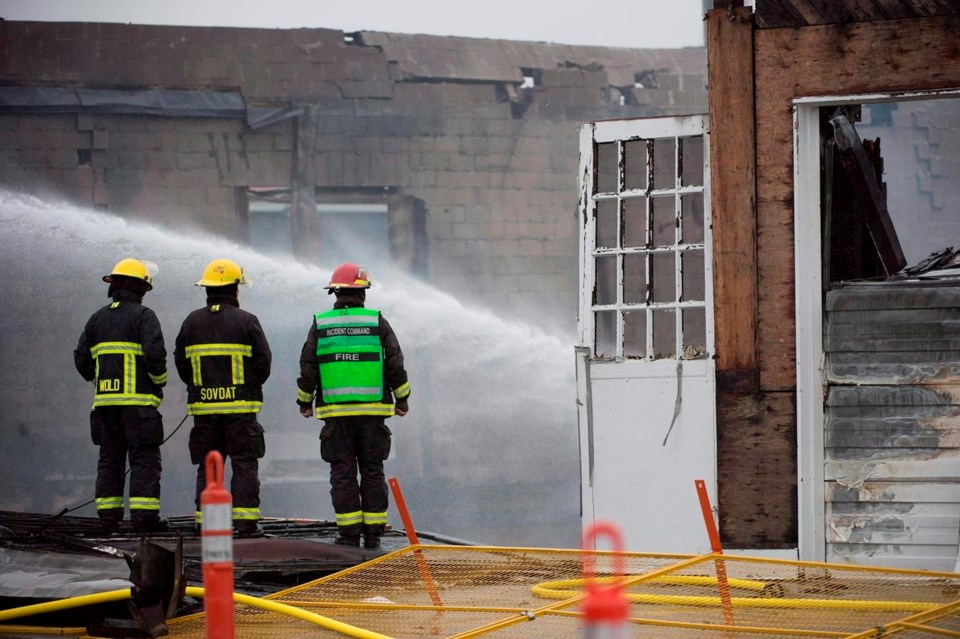VANCOUVER — Those who first respond to emergencies in British Columbia will soon be able to provide more life-saving treatment, the provincial health minister said Friday.
Adrian Dix said the province is expanding the care and treatment paramedics can provide, including using portable ultrasounds to assess patients and giving life-saving medications. Firefighters will be allowed to use additional diagnostic testing, such as checking blood pressure and blood glucose.
"When it's a life-and-death situation, first responders who respond to medical emergencies will be better trained and equipped to manage it all and get you through the most critical moment of your life," he said.
B.C. Firefighters Association president Gord Ditchburn said the changes are "critical" for patient care in B.C.
"Firefighters responding to incidents where they are waiting significant periods of time for ambulance paramedics will now be able to gather diagnostic information that assists the patient and, with medical oversight, be able to offer immediate treatment and interventions," he said.
Dix said the province will work with training institutions, firefighters and ambulance paramedics to get the process started.
Troy Clifford, president of the Ambulance Paramedics of B.C., said the union is pleased by the announcement but is concerned about its implementation.
"Increasing scope will help patient care, but at the end of the day this really does not do anything to address the real underlying issue, which is making sure we have enough ambulances and paramedics to meet the demands and make sure people are answering 911 calls in a timely fashion," he said.
The government has also added 85 full-time paramedics, 65 dispatchers and 22 new ambulances. They are expected to be fully operational by the end of 2022, but nine of the ambulances are in operation already, Dix said.
The new measures come after the government said in July that it was overhauling the ambulance service to reduce wait times for the most serious 911 calls after complaints about long delays during medical emergencies.
At the time, Dix said calls had increased dramatically during a record-breaking heat wave in late June and early July when paramedics were already under pressure from the overdose crisis. B.C.'s coroner said 595 people died during the heat wave.
Last month, Dix said the budget for the ambulance service has gone from $424 million to $559 million since 2017.
E-Comm, which oversees the 911 dispatch system, said earlier this week that dispatchers will no longer wait on the phone with callers until help arrives in an effort to answer calls more quickly.
It said the new process will help relieve the emotional stress on its dispatchers, who were previously required to wait on the line with people in medical distress knowing they were unable to provide medical advice while they had other calls waiting.
The move was criticized by the unions representing dispatchers at E-Comm, paramedics and firefighters
“It's unacceptable and it needs to be fixed immediately,” said Ditchburn of the firefighters association.
Clifford said the ambulance union is concerned about the continuity of calls, suggesting it could also end up adding to the workload for his members if they have to contact 911 callers for more information.
E-Comm spokesperson Jasmine Bradley said the move is temporary.
"It's not a decision that was taken lightly," Bradley said.
"But given the extraordinary strain and demand on emergency services that we've seen this year ... we made this decision in order to try and help the greatest number of British Columbians in need."
She said the agency does know how long it will continue the practice but it will analyze the situation on a monthly basis.
This report by The Canadian Press was first published Dec. 3, 2021.
———
This story was produced with the financial assistance of the Facebook and Canadian Press News Fellowship.
Brieanna Charlebois, The Canadian Press



